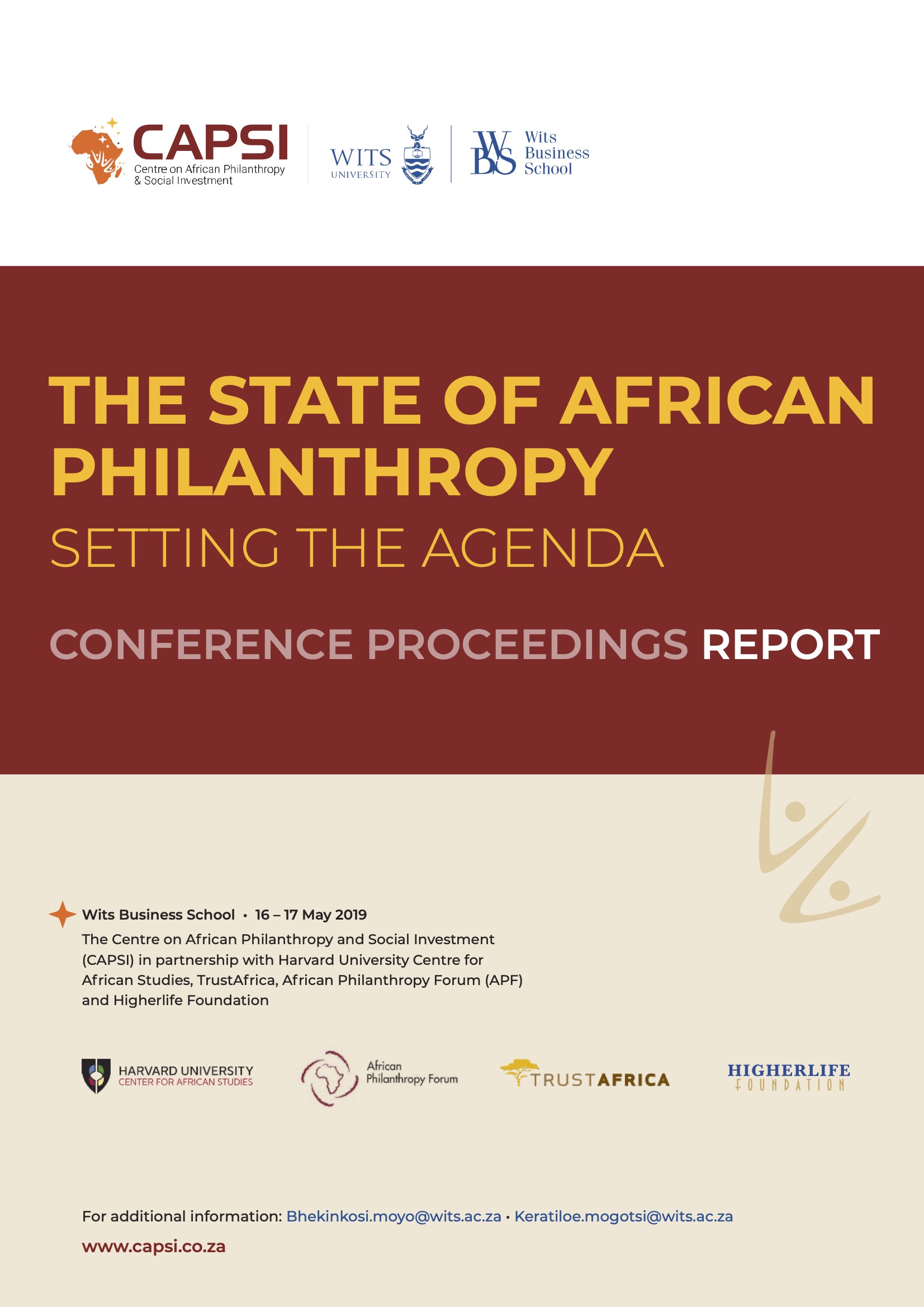Despite decreased commodity prices, sub-Saharan Africa’s overall gross domestic product (GDP) increased by 3% in 2016, which is twice the rate of the United States (US). Meanwhile, the World Wealth Report 2018 estimated that the size of high-net-worth individuals (HNWIs) in Africa reached 167,970 with a combined wealth of US$1, 7 trillion. The size of the African HNWI population increased by 6.9% compared to 2, 1% growth in the Middle East and 9.9% in Europe. Moreover, HNWI wealth increased by 10,3% in Africa compared to 2,9% in the Middle East, 7,8% in Europe, 8,8% in Latin America and 10.3% in North America. This growth trend, which Africa has seen since 2008, makes for interesting reading and has wide implications for philanthropy.
In line with global projections, HNWI wealth could reach US$100 trillion by 2025, with a concomitant increase in wealth in Africa. Yet against the backdrop of such immense growth and wealth, sit dire humanitarian crises, a demographic boom, public health epidemics, and, most notably, the looming threat of climate change – a spectre that undoubtedly haunts the poorest on the continent. In essence, Africa will serve as a major site of contestation for the most important issues of our time. This raises the question of the effectiveness of philanthropy in Africa. What is the blueprint for African philanthropy?
No doubt this century belongs to the African philanthropists, whose capital, influence, local knowledge, and moral authority have the power to address these pressing challenges. Philanthropy, in all its various forms, engages stakeholders from the private, public, non-profit, and religious sectors. It nimbly cuts across geographies, social classes, and demographic groups in a way that governments and businesses often cannot. The impetus for giving is clear: donors identify rampant need in their communities and, for various religious, social, moral, and cultural reasons, choose to give freely of their resources. But what is the impact of their giving? How can they give effectively and in innovative ways? What role does academia play in facilitating effective giving? Finally, what are the strategies that need to be crafted to build an infrastructure for transformative change in Africa through philanthropy?
It still remains less clear, particularly amongst academics, what the “nuts and bolts” of African philanthropy are – how it operates, who sustains it, and what challenges it encounters. With this in mind, we proposed a six-pronged conference agenda which prioritised the following:
Assessing the Need for Philanthropy: With myriad challenges facing the continent, philanthropists must selectively and cautiously allocate resources.
Which challenges will be most effectively addressed by African philanthropy? Which issues should be left to government or the private sector? How can all three engage productively? How do philanthropists decide how to allocate their resources?
Accurately Landscaping African Philanthropy: A dearth of accurate information exists about the size and scope of Africa’s philanthropic sector.
Who are the major players in African philanthropy, both formal and informal? How do they allocate resources? How do they compete, converge, and connect with each other? What strategies do they use to address specific local needs? What do African philanthropists do differently to their non-African counterparts operating on the continent? The existence of many foundations in Africa, such as those formed by former presidents, sports personalities, international foundations and the HNWI population, raises questions about their roles and effectiveness.
Religion and Philanthropy: Africa is the most religiously fervent continent in the world, with Islam and Christianity playing a particularly strong role in public life.
How does religion impact the ways in which people give? Which religious institutions – formal and informal – serve as conduits for philanthropic giving? What constraints does religious philanthropy impose?
Legal and Policy Frameworks for Philanthropic Giving: Despite progress over the past decade, many countries in sub-Saharan Africa lack strong legal and regulatory systems.
How are states developing legal structures to encourage philanthropy? How do various tax, incorporation, endowment, and inheritance policies impact on donors? How are these regulations enforced? Outside of the official state legal narrative, what other customary regulatory frameworks govern philanthropy and who mediates this minimal space? In addition, with regards to new opportunities for giving (such as those provided by the imminent repatriation of African art from Europe) and questions about preservation and exhibition, the state of Africa’s museums and curatorial practice, pressing issues in nature conservation and the preservation of historical sites, how can these be leveraged in making giving effective as far as Africa’s historical, cultural and natural heritage is concerned?
Connecting African Philanthropy to the Diaspora: The African diaspora worldwide consists of some 150 million people and must play a major role in the upliftment and advancement of the continent.
What is the size of the purchasing power of the African diaspora? What philanthropic links do they maintain with Africa and by which mechanisms do they uphold these ties? How can African philanthropists better engage their counterparts in the diaspora?
We hoped that the conference, together with philanthropists (African and non-African), non-governmental organisations that work in this area, policy makers, the private sector, and academic researchers, would explore how we can formulate a coherent framework for African philanthropy. The 21st century can be Africa’s, but Africans will have to claim it.
Emmanuel Akyeampong
-Oppenheimer Faculty Director: Harvard University Centre for African Studies
Bhekinkosi Moyo
-Director: Centre on African Philanthropy and Social Investment
Mosun Layode
-Executive Director: African Philanthropy Forum
Ebrima Sall
-Executive Director: TrustAfrica

